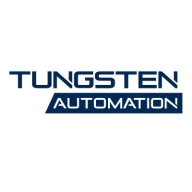

Find out in this report how the two Data Integration solutions compare in terms of features, pricing, service and support, easy of deployment, and ROI.
The tool has made us tremendously more efficient and saved us a significant amount of money.
Using SSIS has proven cost-effective as there are no additional fees outside the SQL Server license, and it significantly enhances data management efficiency.
The first line of support needs to be more knowledgeable.
I would rate the scalability of SSIS at a 7 because we are able to use various third-party items with it, allowing for functionality with a number of different things.
It processes large volumes of data quickly.
Within the South African context, if you are getting your enterprise agreement from First Technology, they don't provide support.
The logging capabilities could be improved, particularly for error logging.
SSIS could be integrated with more services, such as Power BI, to make the reporting structures more user-friendly.
However, it could be a bit cheaper.
Utilizing SSIS involves no extra charges beyond the SQL Server license.
It was included in our licensing for SQL server, and our licensing for SQL server was extremely cheap, making it a very good price point for us.
I would rate it at a 10 as it is highly reliable; we have never had any problems with it.
One of the best aspects of SSIS is that it is built into Microsoft SQL Server, so there are no additional costs involved.
SSAS is included in the base installation of SQL Server.
| Product | Market Share (%) |
|---|---|
| SSIS | 4.0% |
| Informatica Intelligent Data Management Cloud (IDMC) | 3.7% |
| Informatica PowerCenter | 3.7% |
| Other | 88.6% |
| Product | Market Share (%) |
|---|---|
| Tungsten RPA | 2.0% |
| Microsoft Power Automate | 13.0% |
| UiPath Platform | 12.9% |
| Other | 72.1% |


| Company Size | Count |
|---|---|
| Small Business | 27 |
| Midsize Enterprise | 19 |
| Large Enterprise | 57 |
| Company Size | Count |
|---|---|
| Small Business | 11 |
| Midsize Enterprise | 1 |
| Large Enterprise | 18 |
SSIS is a versatile tool for data integration tasks like ETL processes, data migration, and real-time data processing. Users appreciate its ease of use, data transformation tools, scheduling capabilities, and extensive connectivity options. It enhances productivity and efficiency within organizations by streamlining data-related processes and improving data quality and consistency.
We monitor all Data Integration reviews to prevent fraudulent reviews and keep review quality high. We do not post reviews by company employees or direct competitors. We validate each review for authenticity via cross-reference with LinkedIn, and personal follow-up with the reviewer when necessary.